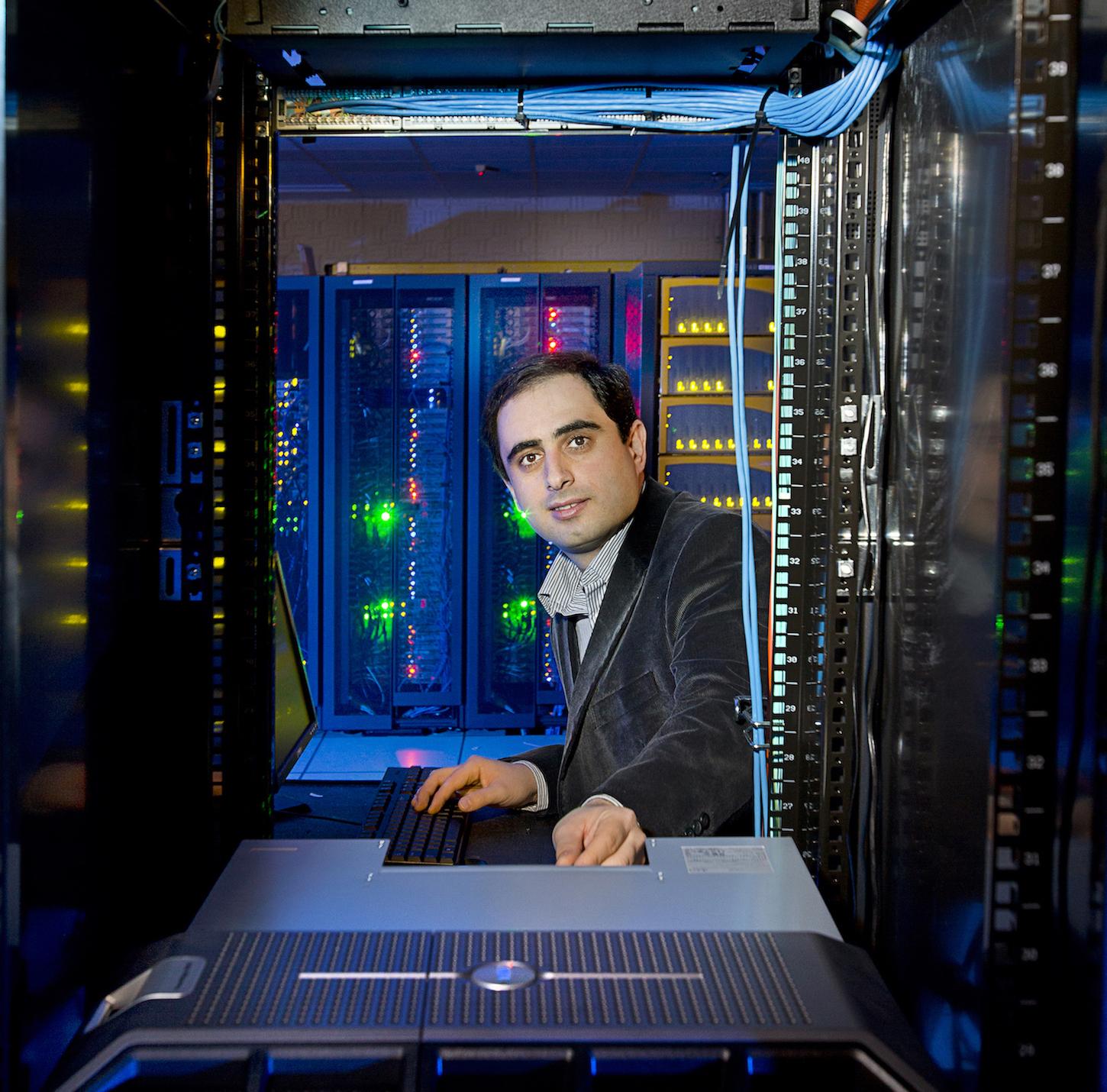
A noted researcher in the University of Maryland Institute for Advanced Computer Studies (UMIACS) is being recognized by the Association for Computing Machinery (ACM) for his work in algorithmic graph theory, game theory and auctions, and algorithms for big data.
Mohammad T. Hajiaghayi, the Jack and Rita G. Minker Professor of Computer Science, has just been named to the 2018 class of ACM Fellows. This honor recognizes the top 1 percent of the organization’s members for their outstanding accomplishments in computing and information technology, and/or outstanding service to ACM and the larger computing community.
Hajiaghayi is one of 56 researchers that were named ACM Fellows this year. They will be formally honored at ACM’s annual awards banquet, to be held on June 15, 2019 in San Francisco.
In acknowledging the advances made by this year’s cohort, ACM President Cherri M. Pancake said: “In society, when we identify our tech leaders, we often think of men and women in industry who have made technologies pervasive while building major corporations. But the dedication, collaborative spirit and creativity of the computing professionals who initially conceived and developed these technologies [often] goes unsung. The ACM Fellows program publicly honors these major theoretical contributions.”
Aravind Srinivasan, a professor of computer science with an appointment in UMIACS, says he nominated Hajiaghayi for the ACM award because of his excellent work and dedication to both his field and colleagues.
“Mohammad has made voluminous research contributions to several areas, including algorithmic graph theory and algorithmic game theory,” says Srinivasan, who received the ACM Fellow status himself in 2014. “In addition, he has an exceptional record of leadership, contributions and service to the computing community at large.”
Hajiaghayi’s research and scholarship involves algorithmic game theory and combinatorial auctions, network design, combinatorial optimizations and approximation algorithms, fixed-parameter algorithms, algorithmic graph theory, distributed and mobile computing, and computational geometry and embeddings.
Previous awards and honors include a National Science Foundation (NSF) CAREER award, a Google Faculty Research award (twice), an Office of Naval Research Young Investigator Award, the University of Maryland (UMD) Research and Scholarship Award (RASA), the European Association for Theoretical Computer Science (EATCS) Nerode Prize, the UMD Graduate Faculty Mentor of the Year award, and ACM’s International Collegiate Programming Contest (ICPC) Coach Award.
He has also won best paper awards at the ACM Symposium on Parallelism in Algorithms and Architectures (SPAA) 2010, the International Symposium on Algorithms and Computation (ISAAC) 2006, and the Robocup 2001 Conference.
Before joining UMD, Hajiaghayi was a senior researcher in the Algorithms and Theoretical Computer Science group at AT&T Labs.
Prior to that, he was a one-year postdoctoral fellow in the School of Computer Science at Carnegie Mellon University and a one-year postdoctoral associate at the MIT Computer Science and Artificial Intelligence Laboratory (CSAIL), where he also earned his doctorate in applied mathematics in 2005.
Hajiaghayi received his Master of Science degree in computer science from the University of Waterloo in 2001 and his undergraduate degree in computer engineering from Sharif University of Technology in 2000.
In addition to his position at UMD, Hajiaghayi holds a research affiliate position in CSAIL. He is also a permanent member of the Center for Discrete Mathematics and Theoretical Computer Science (DIMACS) at Rutgers University.
He is the 16th member of UMIACS to be named an ACM Fellow. Victor Basili (emeritus), Rama Chellappa, Larry Davis, Joseph JaJa, Sarit Kraus (visiting professor), Ming Lin, Dinesh Manocha, Jack Minker (emeritus), Dana Nau (affiliate professor), Dianne O’Leary (emerita), Louiqa Raschid, Hanan Samet, Ben Shneiderman (emeritus), Srinivasan and Uzi Vishkin have previously received this distinction.